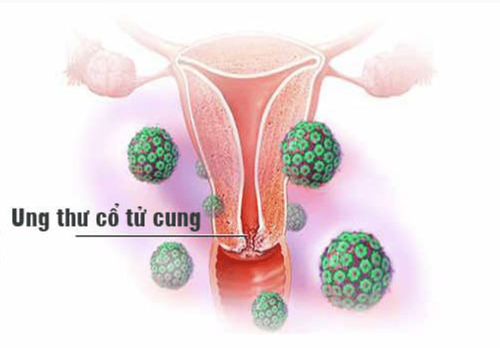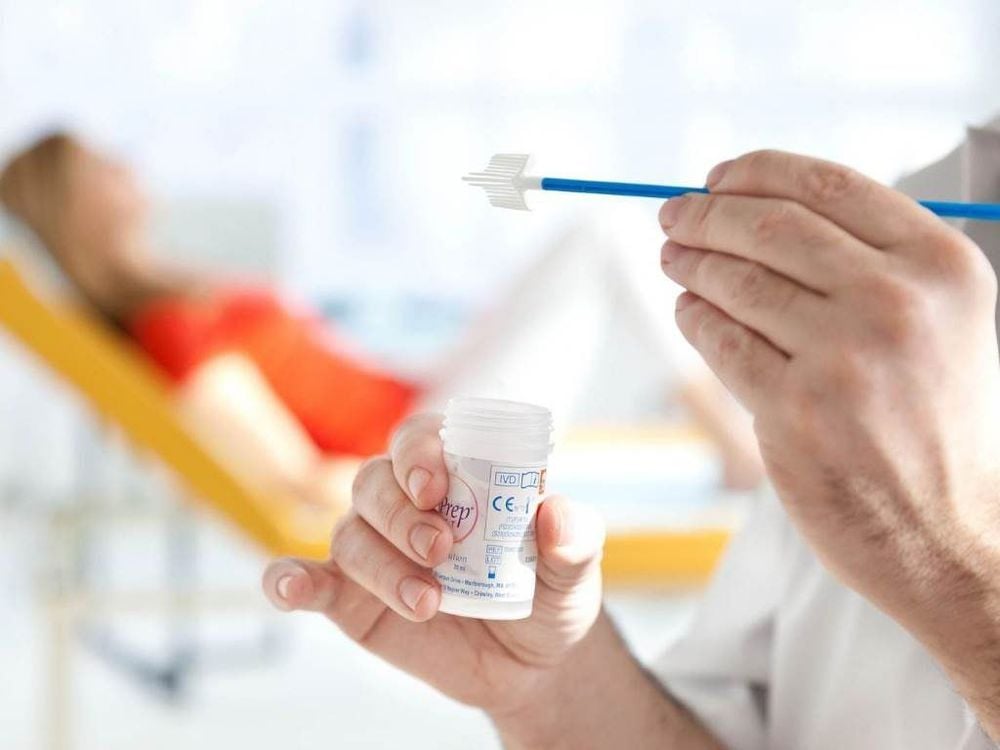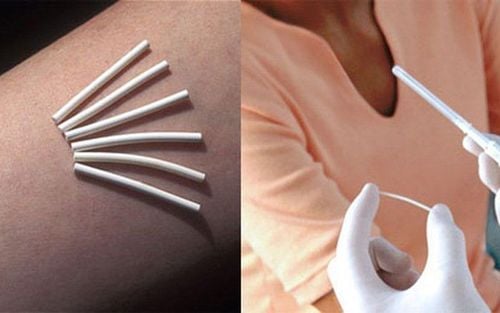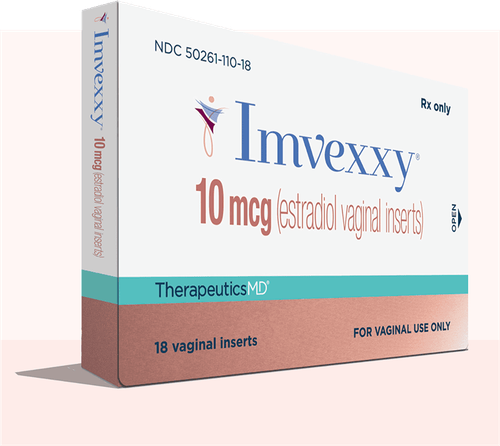This is an automatically translated article.
The article was professionally consulted by Specialist Doctor I Le Hong Lien - Department of Obstetrics and Gynecology - Vinmec Central Park International General Hospital.The Pap smear is a test to detect cervical cancer in women. Detecting cervical cancer early with this test will give you a high chance of successful treatment and detect changes in cervical cells to predict future cancer development.
1. What is the Pap Smear Test?
The Pap Smear test (English name is Pap smear), also known as the Pap test or cervical smear, is used to screen for cervical cancer.The Pap Smear test is usually done in conjunction with a pelvic exam. In women over 30 years of age, the Pap Smear test can be combined with a test for the Human papillomavirus (HPV), which is a common sexually transmitted infection that can cause cancer. cervical mail.

2. When is the Pap Smear test done?
In general, doctors recommend starting a Pap Smear test at age 21 and every three years for women ages 21 to 65.Women 30 years of age and older can consider a Pap test every 5 years if the screening process is combined with a viral test. Or you may consider an HPV test instead of a Pap Smear test.
If you have certain risk factors, your doctor may recommend that the Pap Smear test happen more often, regardless of age. These risk factors include:
Having been diagnosed with cervical cancer or a Pap Smear test showing precancerous cells Exposure to diethylstilbestrol (DES) before birth HIV infection A weakened immune system due to organ transplant, chemotherapy or chronic corticosteroid use Smoking.

After a total hysterectomy. After a complete hysterectomy, ask your doctor if you need to continue to have a Pap Smear test. If a hysterectomy was performed for a noncancerous cause, such as uterine fibroids or an obstetric complication during delivery, you may be able to stop having the routine Pap Smear test. But if the hysterectomy is due to a precancerous condition or cervical cancer, your doctor may suggest continuing to have regular Pap Smear tests. Advanced age: Doctors generally agree that women may consider stopping routine Pap Smear testing at age 65 if their previous tests were negative for cervical cancer. If you are sexually active with multiple partners, your doctor may recommend that you continue to have a Pap Smear test.
3. Pap Smear Test After Menopause
The Pap Smear test is the best tool for detecting precancerous conditions that can lead to cervical cancer. If detected early, cervical cancer can be cured.3.1 Do I need a Pap Smear test now that I am menopausal?
Even if you're perimenopausal or menopausal, you should continue to have a Pap Smear test.Screening can also be stopped at age 65 or 70 if a woman has had at least three normal Pap Smear tests in a row and no abnormal Pap Smear test in the previous 10 years.
3.2 How often is the Pap Smear test after menopause?
You can have a Pap Smear test every 3 years if both of the following are true for you:You have had normal Pap Smear test results for three consecutive years. You do not have a positive Pap Smear test result with pre-cancer, do not have HIV infection, do not have a compromised immune system, and have no history of utero exposure to diethylstilbestrol.

3.3 Do I need a Pap Smears test if I have had a hysterectomy?
The Pap Smear test may be stopped after a total hysterectomy unless surgery is done for invasive cervical cancer or another type of uterine cancer.3.4 What are the symptoms that warrant a Pap Smears test?
When cancer occurs in the cervix, the most common symptom is irregular bleeding. Bleeding may start and stop between regular menstrual cycles, or may occur after sex or douching (although douching is not recommended).Abnormal vaginal discharge is another symptom of cervical cancer, but pain is not an early warning sign of cancer. These symptoms can be caused by many different conditions and are not necessarily a sign of cancer; But it's best to see your doctor if any of these symptoms occur.
Specialist I Le Hong Lien has been an obstetrician-gynecologist at Vinmec Central Park International Hospital since November 2016. Doctor Lien has over 10 years of experience as a radiologist in the Department of Ultrasound at the leading hospital in the field of obstetrics and gynecology in the South - Tu Du Hospital.
Please dial HOTLINE for more information or register for an appointment HERE. Download MyVinmec app to make appointments faster and to manage your bookings easily.
References: mayoclinic.org, webmd.com
SEE MORE
How often should a Pap smear screen for cervical cancer? Causes of Abnormal Pap Test Results Cervical Cancer Screening with a Routine Papsmear Test














